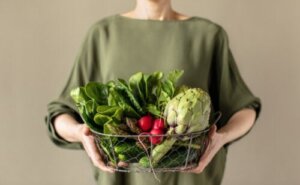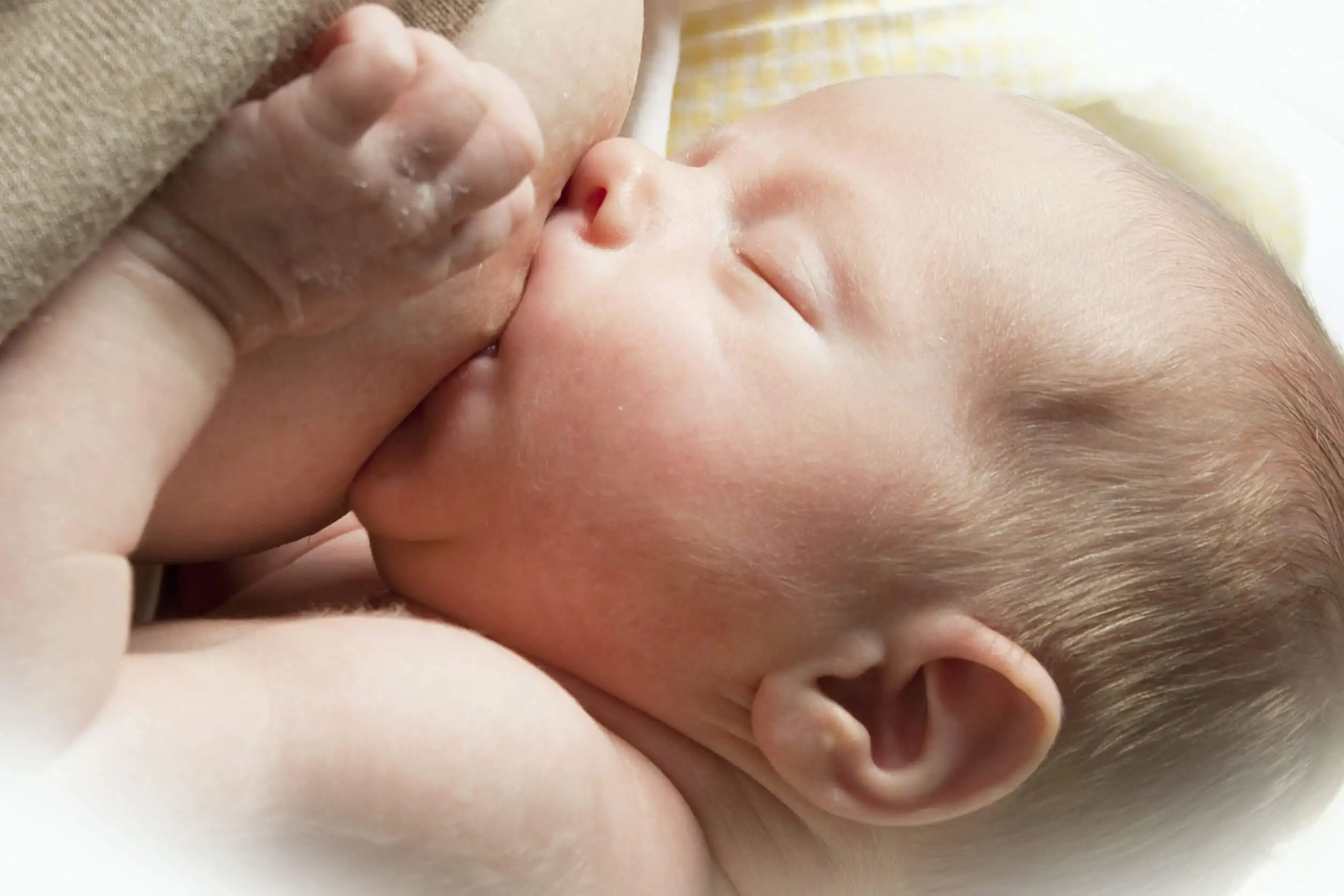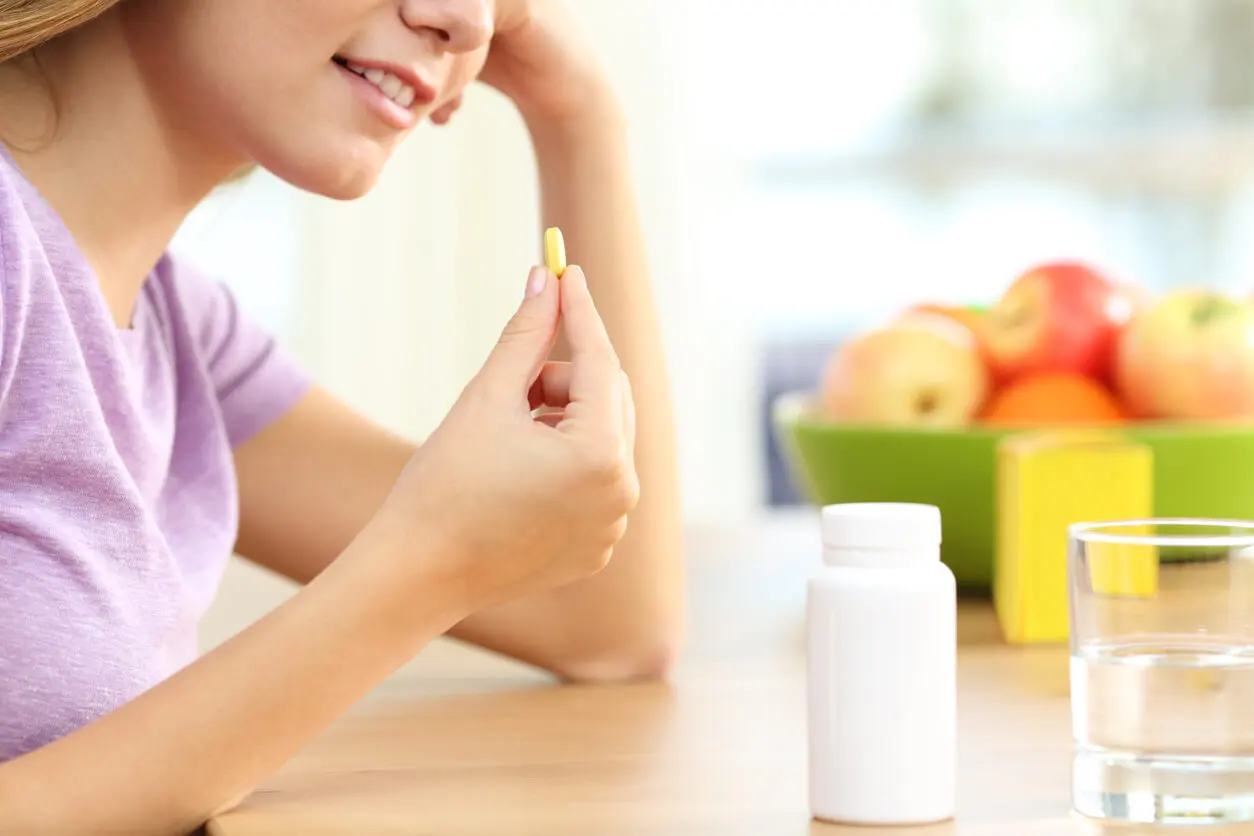Vegan Diet During Breastfeeding: What's Recommended?

There are many myths surrounding the vegan diet while breastfeeding. However, most of them are completely unfounded.
That said, it’s also important to note that if a mother maintains a vegan diet while breastfeeding, she should make sure that she’s consuming adequate protein, vitamins, minerals, and calories. Otherwise, some imbalance could be generated.
The most advisable thing to do is to discuss it with your doctor. He/she will offer the necessary guidance so that nutritional deficiencies don’t occur.
Diet and breastfeeding
Breast milk itself contains most of the nutrients needed by the baby, regardless of whether the mother has a vegan diet while breastfeeding or not. Despite this, there are also other nutrients that can only be obtained from food when the child is over 6 months old.
During breastfeeding, the body makes breast milk available to the baby. For this reason, the mother must eat well, otherwise she may suffer from deficits in her own body.
On the other hand, there are some nutrients that the body cannot produce or that are not stored sufficiently. These include iron, iodine, zinc and vitamin B12. If the mother follows a vegan diet while breastfeeding, she should make sure she gets enough of these.
In general, an adult should eat about 2000 calories per day. A nursing mother should add an additional 300 to 500 calories. It’s very important to stay within this range so that you can offer quality nutrition to your baby without putting his health at risk.

What is a vegan diet like?
A vegan diet is one that is based exclusively on plant products. It doesn’t include any food of animal origin.
This type of diet can be very healthy, but it also hinders the obtaining of some nutrients that are more present in animal products.
A vegan diet can be healthy for a mother, provided that it’s planned in the right way. In particular, attention should be paid to the intake of vitamin B12, since a deficiency of this vitamin can cause developmental problems for the baby.
Vegan diets are an excellent option to prevent certain diseases. However, if the mother doesn’t know much about the subject or isn’t sure about the proportion of nutrients she is ingesting, it’s best to seek medical advice.
We think you may also enjoy reading this article: What’s “Baby Talk” and How Does it Benefit Babies?
Possible risks of vegan diet in breastfeeding
Vegan women require, throughout pregnancy and breastfeeding, additional sources of vitamin B12. Vegetables don’t provide enough of this vitamin and its deficiency could lead to megaloblastic anemia, a disease that seriously affects the physical and neurological development of the baby.
Likewise, cases of neonatal hypothyroidism have been detected in some children of vegan mothers due to iodine deficiency. On the other hand, this type of diet is very abundant in phytates, substances that hinder the absorption of minerals such as iron, calcium and zinc.
The children of mothers with a vegan diet have lower levels of docosahexaenoic acid (DHA). However, there’s no evidence that this affects the baby’s health. The milk of these mothers has more selenium and less taurine, but this has not been found to cause relevant problems either.
What does a vegan mother need?
The vegan diet is limited in the supply of some nutrients, so it’s advisable to obtain the missing nutrients from dietary supplements. Specifically, the vegan mother should be supplemented with the following:
- Vitamin B12: This is only found in animal products.
- Calcium: A dairy-free diet requires calcium from other sources. During lactation, the mother needs 1,000 milligrams per day of this element. The intake of vegetables containing calcium should be reinforced and a supplement may be necessary.
- Vitamin D: The lack of vitamin D in breast milk generates vitamin D deficiency in the baby. It’s important to sunbathe without overdoing it and to consume orange juice, soy milk, and grains. Your doctor will indicate if a supplement is necessary.
- DHA: Docosahexaenoic acid is an omega 3 that is mainly found in fish. 1500 milligrams of DHA per week is required during lactation.
- Iodine: Iodine is necessary for good thyroid health. Sometimes a supplement of this element is required, but the doctor is the one who should indicate whether or not a supplement is necessary.
- Iron: Iron is obtained from various vegetables, such as green leafy vegetables, mushrooms and nuts. However, it’s a low bioavailable iron, so it may be prudent to take an iron supplement if you’re vegan and breastfeeding.
- Zinc: A breastfeeding woman requires 12 milligrams of zinc daily. This is also present in plants, but it’s not as well absorbed as it is in animal products.

Like this article? You may also like to read: When and How to Add Cucumber to Your Baby’s Diet?
Maintain a vegan diet while taking care of the health of mother and baby
The vegan diet is healthy, and a mother has no reason to abandon it when she’s pregnant or breastfeeding. However, it is possible that this type of diet may require supplements in these special stages.
It’s best to evaluate with the doctor the food preferences and reconcile them with the nutritional needs during breastfeeding. The vegan diet needs reinforcements to produce all its benefits without generating any risks to the baby.
All cited sources were thoroughly reviewed by our team to ensure their quality, reliability, currency, and validity. The bibliography of this article was considered reliable and of academic or scientific accuracy.
- Macías, S. M., Rodríguez, S., & Ronayne de Ferrer, P. A. (2006). Leche materna: composición y factores condicionantes de la lactancia. Archivos argentinos de pediatría, 104(5), 423-430.
- Brito, A., Hertrampf, E., Olivares, M., Gaitán, D., Sánchez, H., Allen, L. H., & Uauy, R. (2012). Folatos y vitamina B12 en la salud humana. Revista médica de Chile, 140(11), 1464-1475.
- Leal Curí, Lisette, Drissa Bina Konaré, and Erick Robles Torres. “Nutrición de yodo y salud materno-infantil.” Revista Cubana de Endocrinología 30.2 (2019).
- Soliveres Higuera, I. (2017). Dieta vegetariana y vegana durante el embarazo y la lactancia materna.
This text is provided for informational purposes only and does not replace consultation with a professional. If in doubt, consult your specialist.








